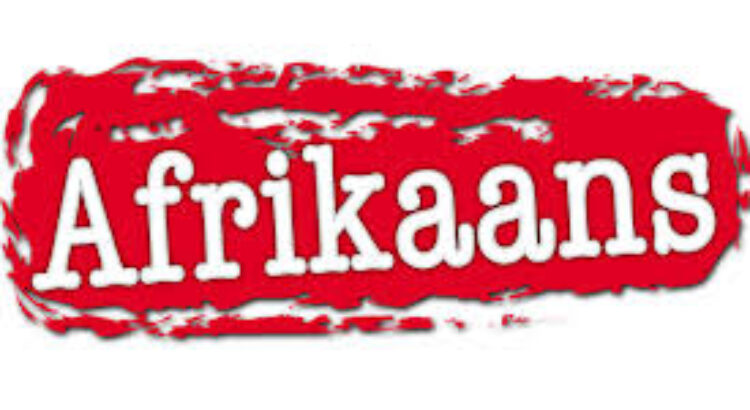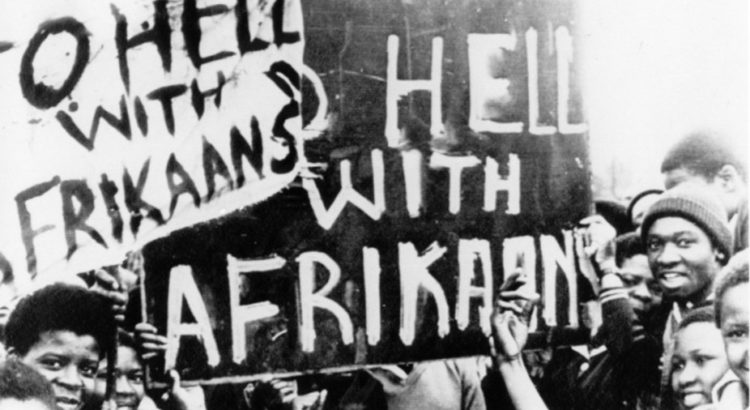Africa/Sudafrica/Junio 2016/Autor: Editor / Fuente: theconversation.com
Resumen: Hace cuarenta años, miles de niños de las escuelas de Soweto salieron a las calles para protestar contra el racismo y la insuficiencia de la educación bantú. Ese momento ha llegado a simbolizar el papel que los jóvenes han desempeñado y pueden desempeñar en la configuración del discurso político de Sudáfrica. Sigue siendo un punto de contacto para los estudiantes activistas de hoy.
This month forty years ago, thousands of Soweto school children took to the streets to protest the racism and inadequacy of Bantu Education. That moment has come to symbolise the role that young people have played and can play in shaping South Africa’s political discourse. It remains a touch point for student activists today.
The marches in June 1976 took shape around a unifying issue of immediate importance to the students: the imposition of Afrikaans as a teaching medium in black classrooms, whose curriculum was dictated by the then Department of Bantu Education.
Images from the march are filled with posters proclaiming “To Hell With Afrikaans” and “Vorster and Kruger are rubbish”. This refers to John Vorster, the prime minister of South Africa and one of apartheid’s architects, and his police minister Jimmy Kruger.
The juxtaposition of these claims is an important one. It speaks to how Soweto children began to straddle the space between local and immediate concerns and a national political agenda. This enabled them to transcend the issues of their classrooms and rejuvenate the struggle against apartheid on a national, and indeed international, scale.
Forty years later South Africa is again in the midst of a political movement led by students – this time on university campuses across the country. Today’s student activists are often compared to the generation of 1976. In mass marches through Johannesburg and Pretoria the form of their protest has prompted the comparison.
In their articulation of ideologies like Black Consciousness they echo some of the key thinkers of that period. But their protests remain largely constrained by the campuses on which they happen. In light of these struggles, it is useful to consider how the students of 1976 tackled similar problems.
The Afrikaans issue
The Afrikaans Medium Decree of 1974 declared that in black schools across South Africa Afrikaans must be used equally with English as a medium for teaching non-language subjects like mathematics and social sciences.
Students and teachers alike struggled to teach and learn in a language for which they were ill-trained and ill-equipped with textbooks and other materials.
Historian Helena Pohlandt-McCormick has written that the Afrikaans medium policy “embodied everything that was wrong with Bantu Education”. She points to its disregard of sound pedagogy, and, more importantly, of the voices of the parents, teachers, and learners on whom it was imposed.
By the middle of the 1976 school year, students had organised themselves in individual protests. Many focused on the imposition of Afrikaans, others addressed student-teacher relations and corporal punishment at individual schools.
They were inspired and encouraged to connect these issues to the broader political system by a range of influences in their homes, communities, and classrooms. Among these were university students who had been “conscientised” through the Black Consciousness Movement and expelled from rural “bush” universities during waves of protest in 1972 and 1974. The most prominent of these was Ongkopotse Tiro.
After Tiro was expelled from the University of the North (today the University of Limpopo, outside Polokwane), where he was a prominent student leader and Black Consciousness proponent, he took up a job teaching history at Morris Isaacson High School in Soweto.
Though he was fired in 1973 and killed in exile in Botswana in 1974, some of his students, including Tsietsi Mashinini, became key leaders in the 1976 uprising.
Addressing structural oppression
Tiro and other young teachers encouraged their students to connect the particular grievances of their own situation – the inequities and injustices of Bantu Education – to the structural oppression meted out by the apartheid state.
This was a lesson students brought to their organisation of the protests on 16 June, and one that played an increasingly important role in the weeks and months that followed. Students in the Soweto Students Representative Council (which compromised many of the student leaders who had organised the June 16 march) called for their parents to stay away from work, and to boycott white-owned shops and products. By August the committee focused its energies on organising a student and worker stay away for the end of the month. According to Sibongile Mkhabela, a member of the SSRC, this was intended to achieve
A few months later students rallied their families to participate in a Black Christmas to mourn those who had been killed by police since June.
June 16 forty years later
University students of 2015-16 have some key things in common with their 1976 predecessors. They have changed the tenor and shape of political discussion around education in South Africa, more effectively than any other single movement since 1994.
They have re-interrogated the ideologies that animated students in 1976. Their engagement with Black Consciousness and Biko, with Fanon and with pan-Africanism has led to a movement to decolonise universities’ faculty and curricula.
But today’s students have struggled to move their activism beyond universities. Not withstanding significant gains in the movement to end the exploitative practice of outsourcing jobs on campuses, for which the Fallist movements of 2015-16 deserve a great deal of credit, student movements today have yet to create enduring alliances with workers outside the university, or with school students.
Beyond shared ideology, the 1976 generation, and, perhaps even more so, the university students of the early 1970s who taught and inspired them, may offer some strategic lessons.
Fuente de la noticia: https://theconversation.com/strategic-lessons-south-africas-students-can-learn-from-the-leaders-of-1976-60976?utm_medium=email&utm_campaign=Latest%20from%20The%20Conversation%20for%20June%2016%202016%20-%205046&utm_content=Latest%20from%20The%20Conversation%20for%20June%2016%202016%20-%205046+CID_b1041287879346882e9701d45128fdd1&utm_source=campaign_monitor_us&utm_term=Strategic%20lessons%20South%20Africas%20students%20can%20learn%20from%20the%20leaders%20of%201976
Fuente de la imagen: https://62e528761d0685343e1c-f3d1b99a743ffa4142d9d7f1978d9686.ssl.cf2.rackcdn.com/files/126544/width926/image-20160614-22383-bci5v9.jpg








 Users Today : 53
Users Today : 53 Total Users : 35459648
Total Users : 35459648 Views Today : 114
Views Today : 114 Total views : 3418086
Total views : 3418086